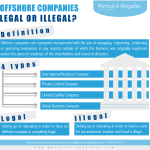
Sanctions in Spain for Unsolicited Electronic Commercial Communications
Law 34/2002 incorporates into Spanish law Directive 2000/31/EC of the European Parliament and the Council on certain aspects of the services of the information society, in particular in regards to electronic commerce. It regulates injunctions for the protection of consumer interests, as well as the actions and sanctions against behaviors contravening provisions of the Law.

The Prohibition of Misleading and Deceptive Advertising in Spain
For firms to get ahead of other firms and get their product sold they commonly use misleading or deceptive advertising. There is law that defines exactly what misleading or deceptive advertising means and states what type of advertisement techniques are prohibited. Misleading or deceptive advertising is not only done through the form of the advertisement itself, but can also be done by omitting general product information, such as its geographical location.

Elements of the franchise contract in Spain
The franchise contract in Spain has no specific regulations, although there are some pre-contractual duties that the franchiser must fulfil in order to give greater protection to the franchisee, which is always considered the weaker party.

Special Legislation for Particular Goods in Spain
At times, the standard or regular laws on advertisements are not sufficient with regard to several types of products. This is usually because these products relate to health or they are products that are used frequently and therefore need more regulation. This is usually the case with products such as alcohol, tobacco, pharmaceuticals, etc. The laws on advertisement concerning pharmaceuticals are especially strict and detailed to ensure that no misleading advertisements are published.

The workers’ representatives in the subrogation of companies in Spain
Article 44 of the Workers’ Statute rules the succession of companies in Spain, reinforces the guarantees of the workers after the change of a company’s owner, improves the instruments of information and consultation, and complies with the obligation of transposing related European directives into Spanish law.

Court approval of refinancing agreements in Spain
The majority of Spanish bankruptcy proceedings end in favor of the debtor. The preliminary phases aim to achieve continuity of businesses that are in critical financial situations. Judicial approval is tantamount to a quasi-automatic resolution of a refinancing agreement, which put minority dissenting creditors at major disadvantages.

Instalments of compensation payment of severance pay in Spain
Companies in Spain with a lack of liquidity at the time of making severance payments can split up the payments of such compensation through a prior agreement with the workers’ representatives.

Who is obligated to withhold and pay tax to the Spanish Treasury?
In Spain, subjects obliged to withhold and pay tax to the Spanish Treasury are paymasters. The issuer of an invoice is not required to inform paymasters whether or not they are subject to the withholding tax or the percentage to be withheld. The person responsible to the Spanish Treasury is the one who receives the invoice, not the one who issued it.

Offshore Companies, legal or illegal?
Offshore companies are incorporated with the aim of managing, registering, conducting or operating businesses in foreign countries (any country outside of which the business was originally registered and/or the place of residence of the shareholders and board of directors).

The truth behind offshore companies, legal or illegal?
Businesses are relocating and setting up in foreign countries to avoid paying taxes in their home countries. This is having a negative impact on the EU. The EU Commission is currently trying to crack down on multinationals using tax avoidance, tax evasion and tax fraud.

